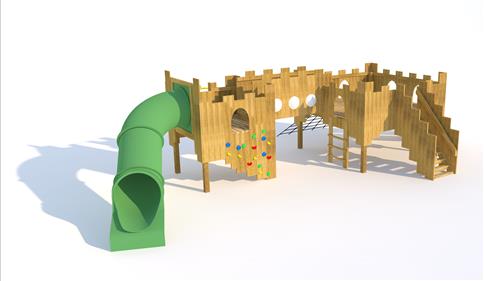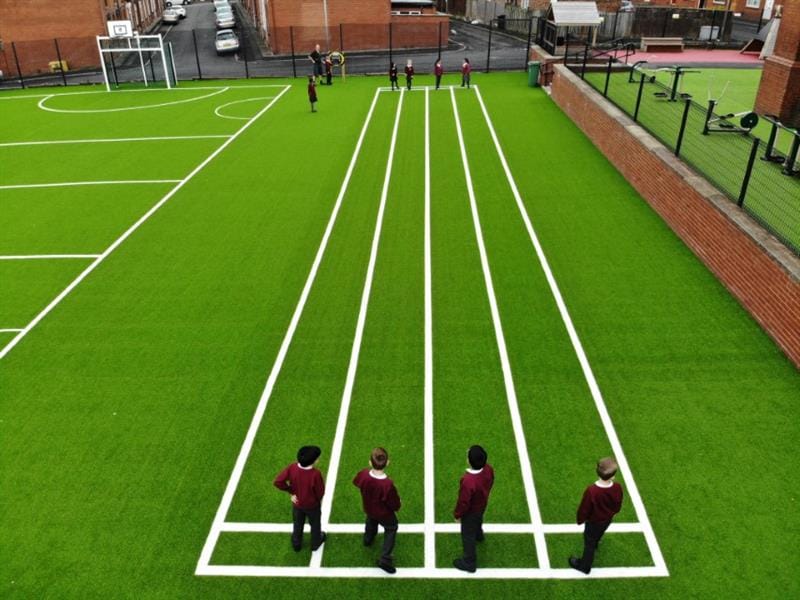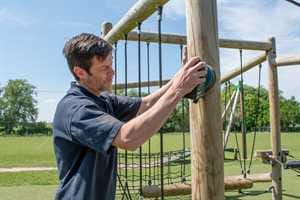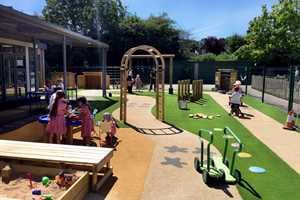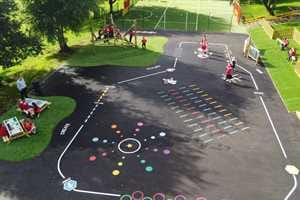
Playground Design
Do You Know How Outdoor Play Can Improve Children's Sleep?
A recent report by the BBC’s investigative current affairs programme, Panorama, revealed that students in English schools are the most sleep deprived in Europe.
This may come as a shock to parents and teachers alike.
It’s not good news, particularly when we look more closely at just how important sleep is for children, their physical and mental health and wellbeing, general development and academic performance.
As a nation, we are becoming more switched on when it comes to several general health concerns such as the importance of a good diet, the dangers of sugar and junk food, and the need for regular exercise. But for some reason, we are really falling behind in our understanding of the need for sleep, and the importance we place on it.
Primary school aged children need between 10 to 12 hours of sleep every night. Teenagers need only an hour less.
Here we discuss children's sleep problems and why children need plenty of good quality sleep. We look at tips and recommendations for helping children to get enough sleep, and how regular outdoor activities play their part in this.
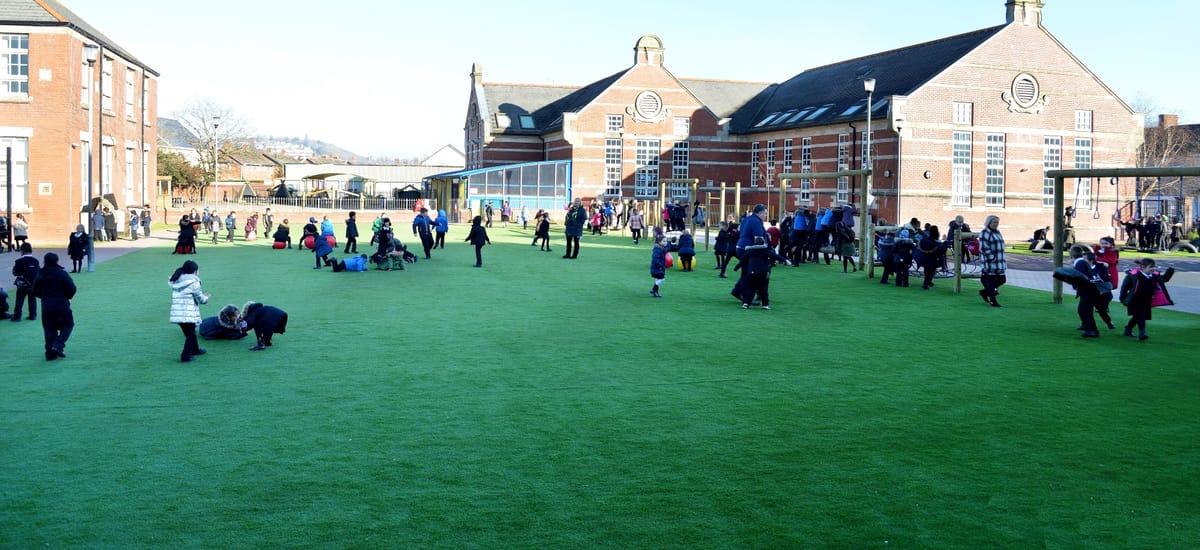
What Happens When Children Sleep, And When They Don’t
When we are asleep, our brains are busy consolidating and storing what we have learned during the day. If children don’t sleep well, they don’t get to properly process everything that they have learned that day, so they suffer mentally and academically.
Children's sleep directly impacts their mental and physical health and development, as it’s while they are asleep that their bodies can focus attention on growth and repair, and their brains can rest and recover.
From the moment of birth, we are constantly absorbing new information and learning new skills. The amount we learn and grow in our early years is incredible.
And because it’s during childhood that we do most of our physical growing, start to mature and develop psychologically, then it’s essential that children get enough sleep to allow them to do this properly.
For children of primary school age suffering from a lack of sleep, this can be really damaging, as they are still in the process of learning social and behavioural skills.
While some children are quite good at going to bed when they need to, as a general rule children are not the best judges of how much sleep they really need, as there is often something far more interesting that they would prefer to be doing!
They need our help to get into a good sleep routine so that they can grow and develop naturally and happily.
The effects of sleep deprivation are severe. Sleep studies have suggested that children who are sleep deprived often have behavioural problems, are less active and have more learning difficulties than those who are not.
If a child is sleep deprived, then you will see their behaviours change. They are often irritable, moody, struggle to cope with day to day tasks and more prone to tantrums.
A child’s ability to learn effectively can be determined by the quality of sleep that they are getting. When a child is sleep deprived, this has an immediate impact on their ability to concentrate and to learn at school, and it shows in their performance.
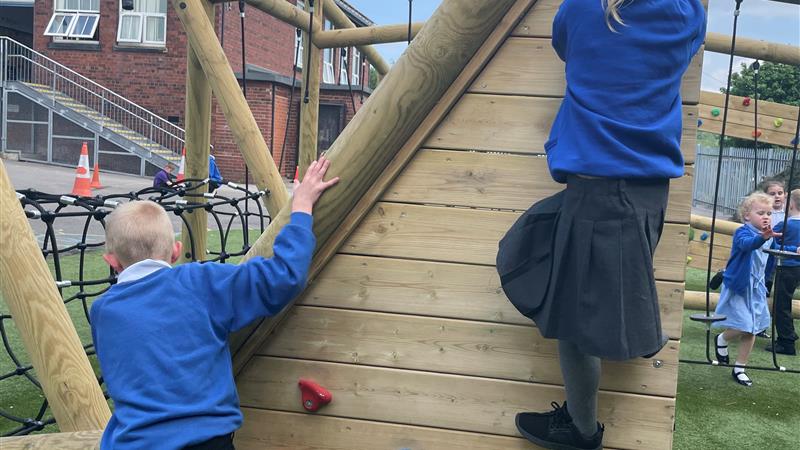
Sleep Deprivation and Obesity
Sleep deprivation has also been linked to obesity.
The World Health Organization regards childhood obesity as one of the most serious global public health challenges for the 21st century, and children in the UK are among the most obese in Western Europe. This goes hand in hand with high levels of sleep deprivation among children in the UK.
Obesity can cause sleep apnea (pausing breathing) due to the extra fat around the airways, which wakes children up or causes poor quality sleep.
Sleep apnea in children has risen by 25% since 2012. In turn, studies have shown that poor sleep can lead to obesity, so it’s a vicious cycle. If we don’t get enough sleep it affects our hormones, making us hungry and craving unhealthy foods containing sugar and starch.
When we are tired, we don’t have enough energy to exercise, or don’t feel like exercising, so we don’t get enough exercise and we put on weight.
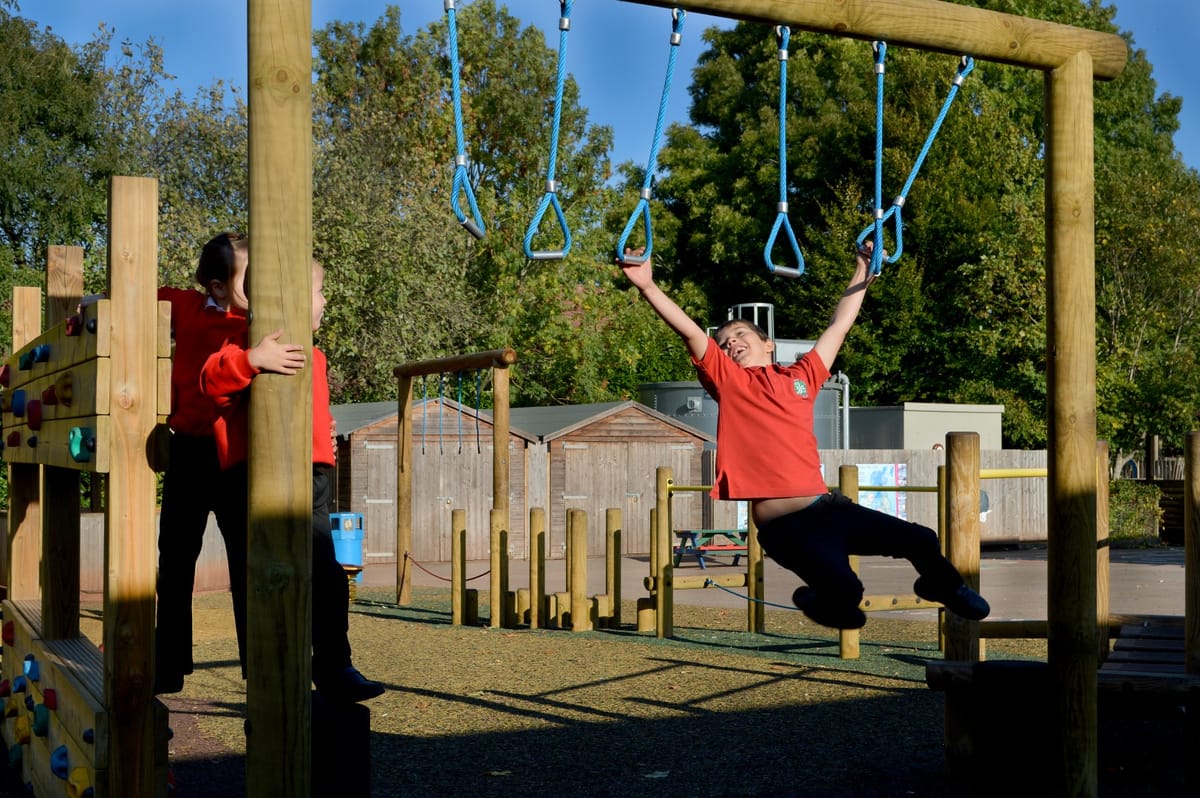
How Outdoor Play Can Combat Children's Sleep Problems
While daily exercise is a good way of ensuring a better night’s sleep, even better is daily exercise outdoors in the fresh air and natural light!
It doesn’t have to be a hardcore workout session. Allowing children to run around and play outdoors, spending more time in the fresh air than cooped up inside, whether it’s outdoor learning at school or pure outdoor playtime, can make a big difference to both the quantity and quality of sleep that children can benefit from.
Why is outdoor exercise so much better? Exercise releases soothing endorphins into the bloodstream and can help with the production of melatonin which makes us feel sleepy.
Outdoor play encourages more high energy or bigger movement activities such as running, jumping, climbing and rolling, which promote muscle fitness.
Research has shown that moderate to vigorous physical activity in child care settings increased from 1% indoors to as much as 17% outdoors. In short, getting out into the playground gets children moving more, leading to more endorphin production and consequently a better night’s sleep.
A study at Liverpool John Moores University found that babies sleep longer when they are exposed to plenty of natural light in the afternoon.
Many moons ago, weather permitting, mothers used to leave babies outside in the back garden in the afternoons. There are many good reasons why people don’t tend to do this today, but taking them out for an afternoon walk, sitting with them in the back garden or placing their crib in front of a large window rather than in a darkened nursery are good alternatives.
The researchers think that the stimulus of light is what helps babies to establish their circadian rhythms, cycles influenced by hormones, light and dark, which set body clocks in humans, sooner.
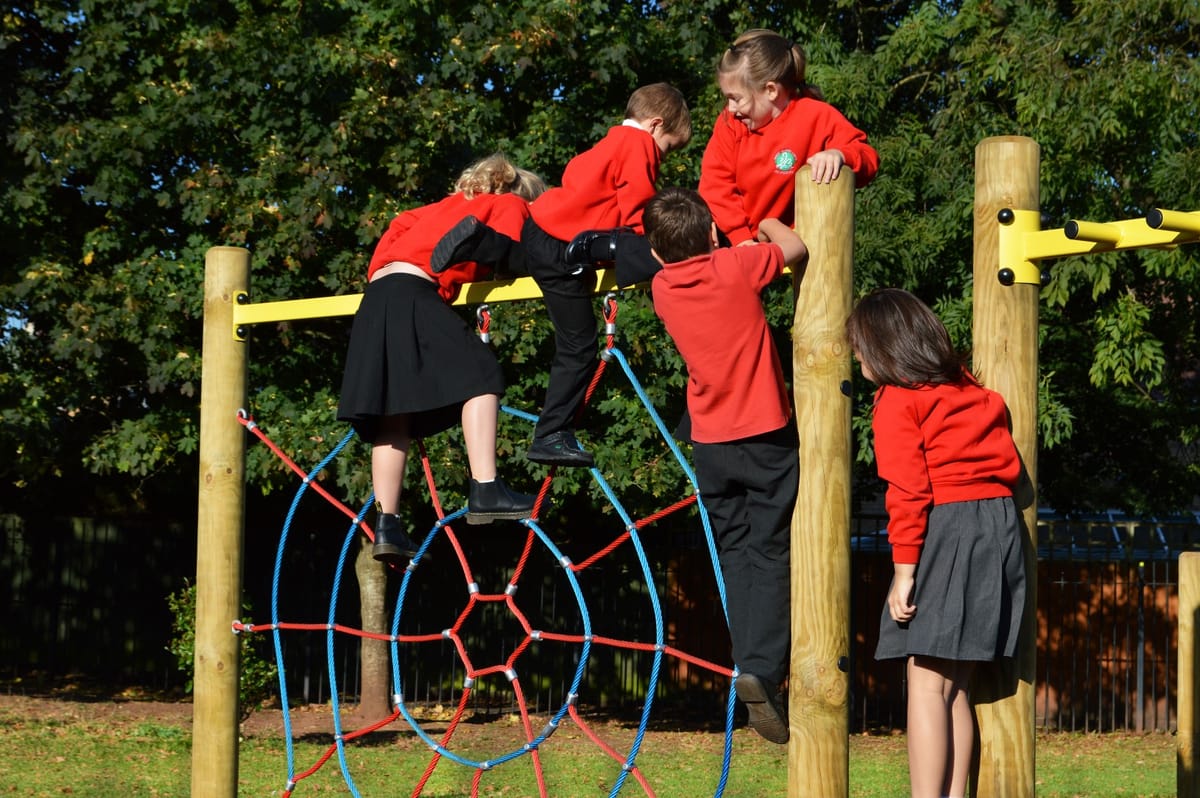
Circadian rhythms promote daytime alertness and help bring on sleepiness at night time. The same theory applies to children and adults and it’s one of the reasons why spending more time outdoors is recommended to help ensure a good night’s sleep for all of us.
Spending time outside in nature is soothing and seems to have its own way of comforting children. It can offer cognitive benefits, take away stress and foster a sense of release or a haven for children who might be feeling the pressure whether from school, family, or peers.
Research has found that children who suffer from attention deficit hyperactivity disorder can gain significant relief from their symptoms and can concentrate better if they spend some time outdoors.
Taking away some of the stresses of everyday life by spending more time engaged in outdoor activities in a natural environment can really help the brain to “switch off” when it’s time to go to bed.
In the US, the National Wildlife Federation’s recent report entitled “Green Time for Sleep Time”, highlights the connection between the time children spend (or don’t spend) playing outdoors, and sleep deprivation.
“While there is no single solution to childhood sleep deprivation, part of having a well-rested child involves trading some “screen time” for “green time”, says Kevin Coyle, author of the NWF report. “More play time in natural settings can help kids get a high-quality night’s sleep.”
The report advocates cutting back on children’s consumption of electronic entertainment, which can hinder sleep, and replacing it with some outdoor play time every day.
Product Spotlight
How We Can Get Our Children Sleeping Better
It isn’t all bad news! Thankfully there has been some good research into how parents and teachers can help get our children sleeping better, naturally.
The main messages to come out of it are to get into a good bedtime routine, and to get plenty of outdoor exercise too.
Most of the direct work must come from parents and carers, but schools can really help by informing and educating children and their parents about the importance of sleep, sending home the right messages as to what they should be doing, and making sure that children are getting plenty of opportunities for outdoor exercise through playtime and outdoor learning throughout the day.
This should start from a very young age, but even if your children are no longer in their early years, it’s not too late to start, and start straight away. Setting them off on the right pathway to good sleep will create habits that they can follow throughout life:
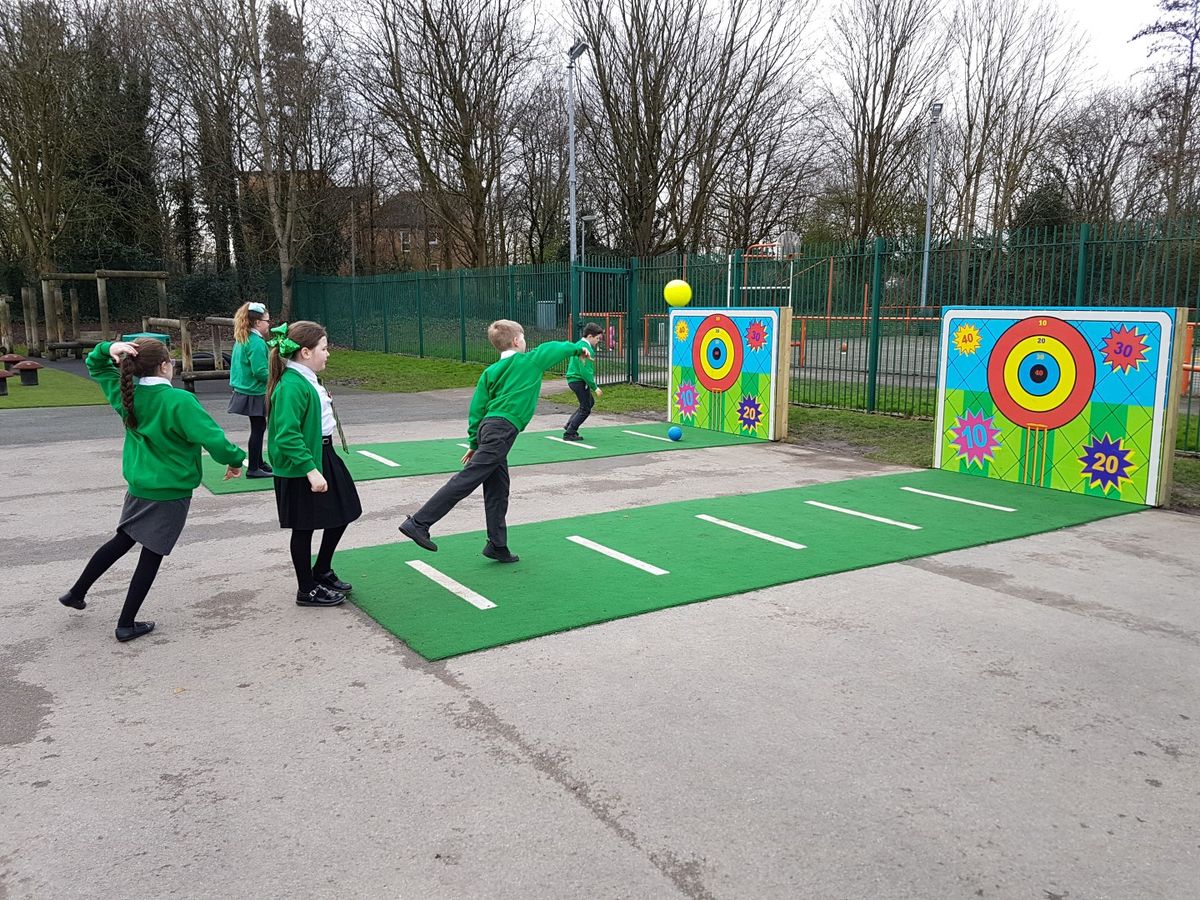
Bedtime Routine
To combat children's sleep problems, a sleep routine is vitally important to both adults and children and can often be a determining factor as to whether someone sleeps well or not.
Setting up a bedtime routine that will help a child to relax before they go to sleep, and their minds to naturally wind down, will help them get to sleep more quickly and to sleep more deeply. Try and start the routine earlier if it’s a struggle, so that children eventually go to bed earlier and at the same time every night.
Have a warm bath or shower 30 minutes before bed. Let them eat a small healthy snack like a banana or some porridge before they clean their teeth, if it’s likely that hunger will keep them awake.
Always avoid unhealthy, sugary snacks and drinks and anything with caffeine which will wake them up (check the label because it’s surprising what creeps in where you don’t expect it!)
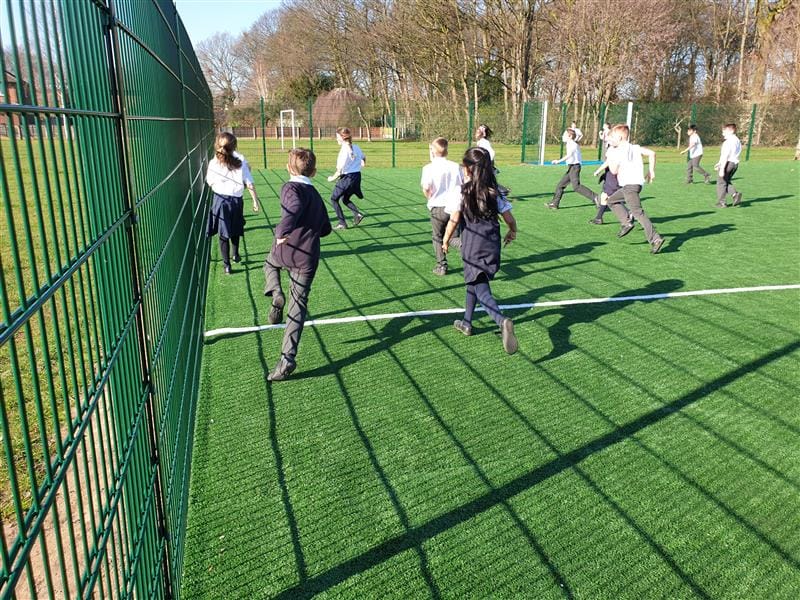
Put the Screen Down!
One of the first things to do is to stop children using tech in the evenings!
We have heard it before but it is all too easy to fall into the trap of so called “quiet time” in front of the screen, without realising the detrimental effect it is having on sleep.
The Children’s Sleep Charity, a charity based in Doncaster, was set up to help families where children are really struggling to sleep. They have seen family break ups, parents having to give up work and parents and children suffering from serious mental health issues because of a lack of sleep.
They recommend switching all screens off at least an hour before bed, to give the brain time to relax. Glare and blue light from screens is what tricks the brain into thinking it’s daytime.
The brain releases a hormone called melatonin when the sun goes down, to make us feel sleepy. But blue light from screens makes our brains think it’s daytime, which means it reduces melatonin production, and makes going to sleep harder.
So, if you think “quiet time” in front of the tv just before bed is what is needed, think again. Stick with a warm bath and a good book if you must do something in that last hour before bed!
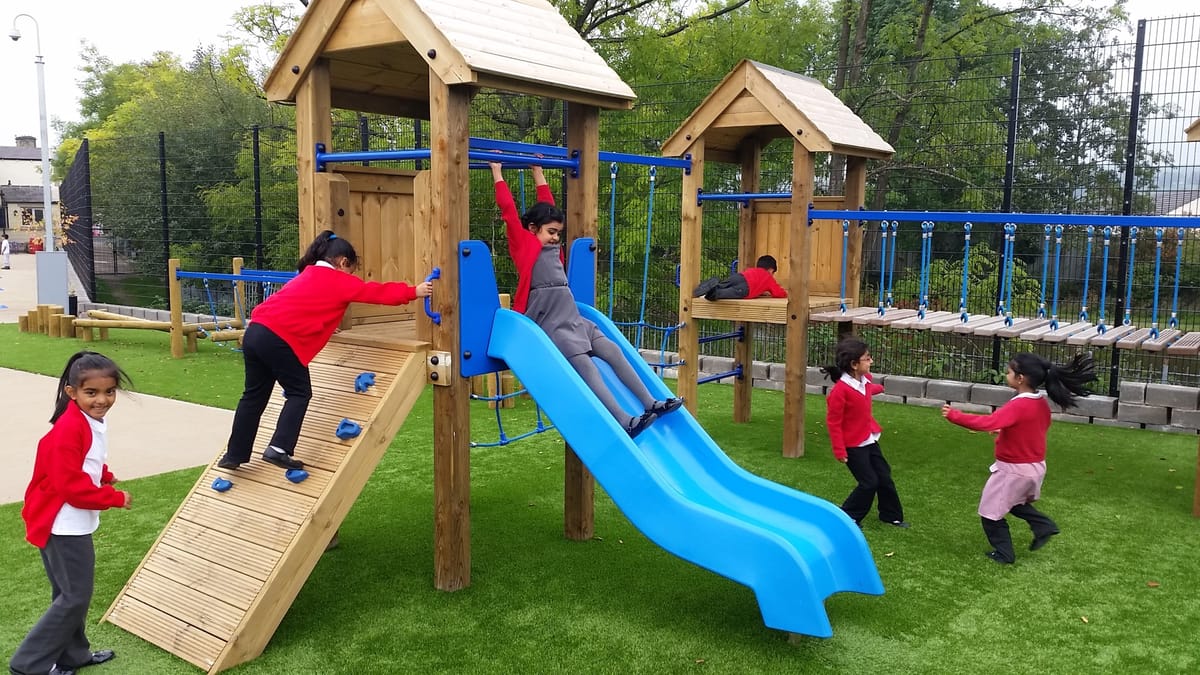
Daily exercise!
Exercise is good for sleep. Research has highlighted the benefits of exercise in improving sleep patterns. It lifts the mood and reduces stress.
The National Sleep Foundation in the US carried out a survey which revealed that regular exercisers were significantly more likely to sleep well on most nights than people who were not physically active.
Not only does the quantity of sleep improve with exercise, but also the quality, as daytime physical activity can stimulate longer periods of deep sleep, which is the most restorative stage of sleep.
Studies have suggested that exercise may not have an immediate impact on sleep, but that it can take a few weeks or months for the effects of exercise to show and to have a real impact improving sleep.
So, the message is to stick with it as it isn’t a quick fix solution, but it is one that works, and with regular exercise sleep will improve over time.
Good sleep, on the other hand, has a much quicker effect on a child’s ability to exercise as they are more “ready to go” the next day.
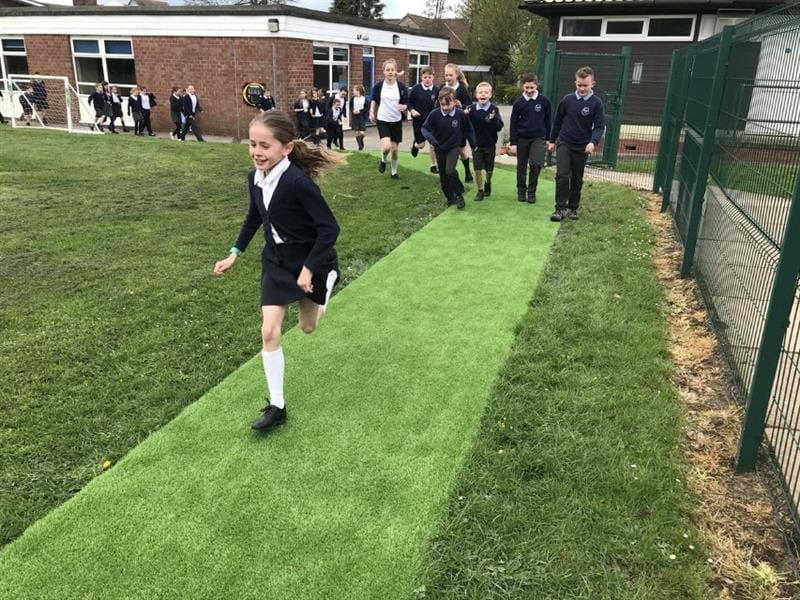
And finally…….go outside!
If we can incorporate a good dose of outdoor learning and outdoor play into our children’s daily routine, it will have its rewards when it comes to bedtime, and all the ensuing benefits that go hand in hand with a good night’s sleep.
It’s time for bed. Goodnight!
For more information on children's sleep and solutions for insomnia, check out the NHS Children's Sleep Advice.

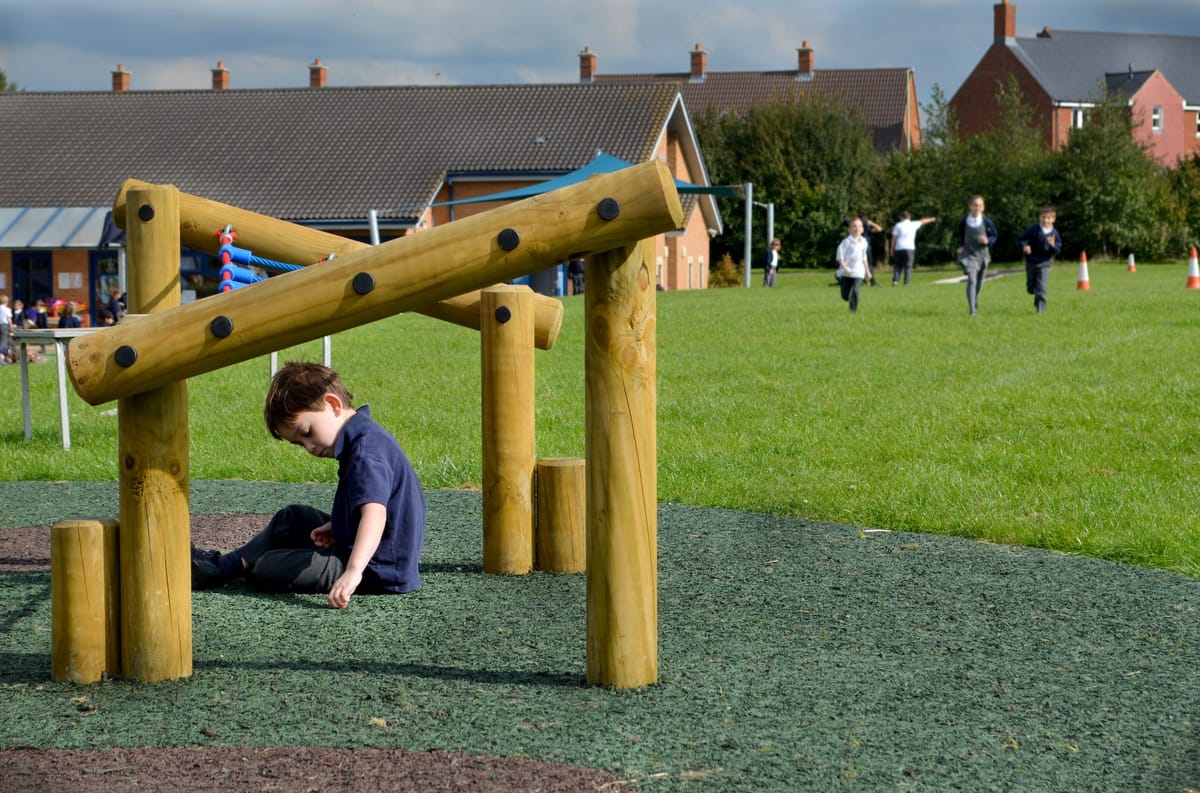
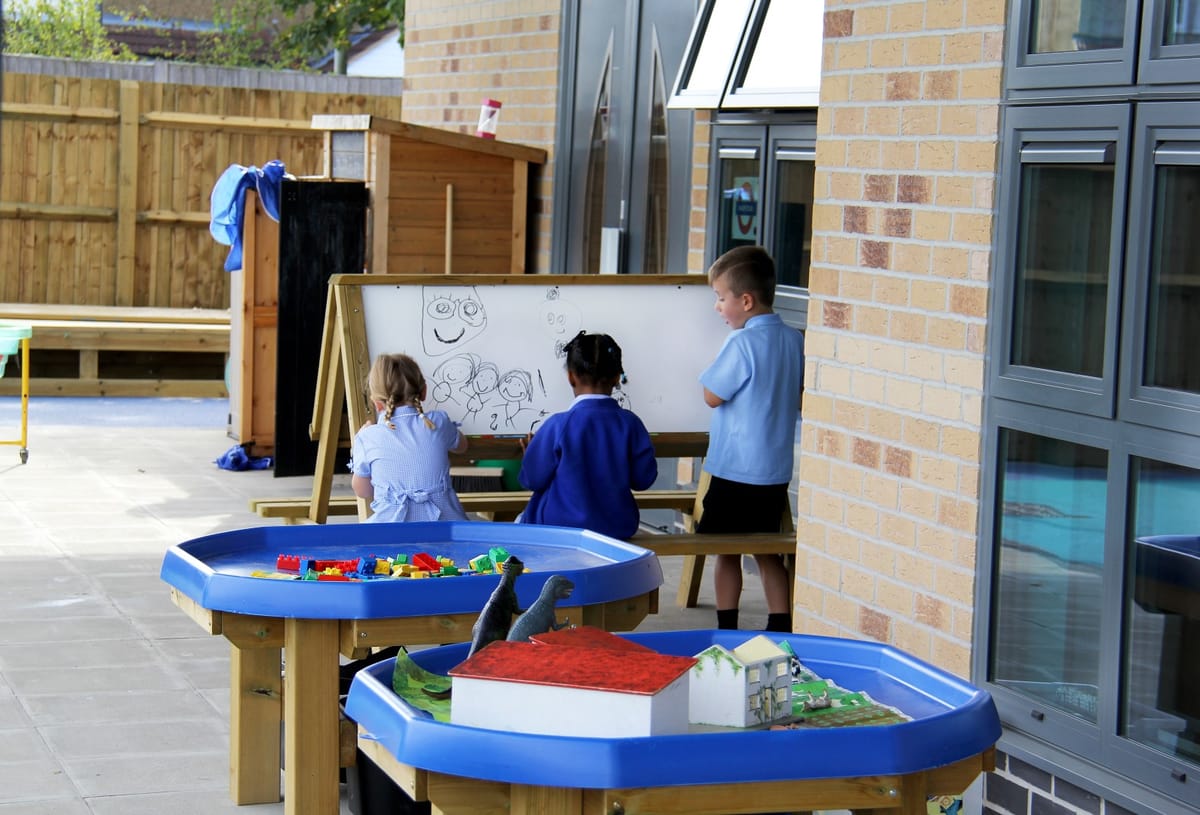
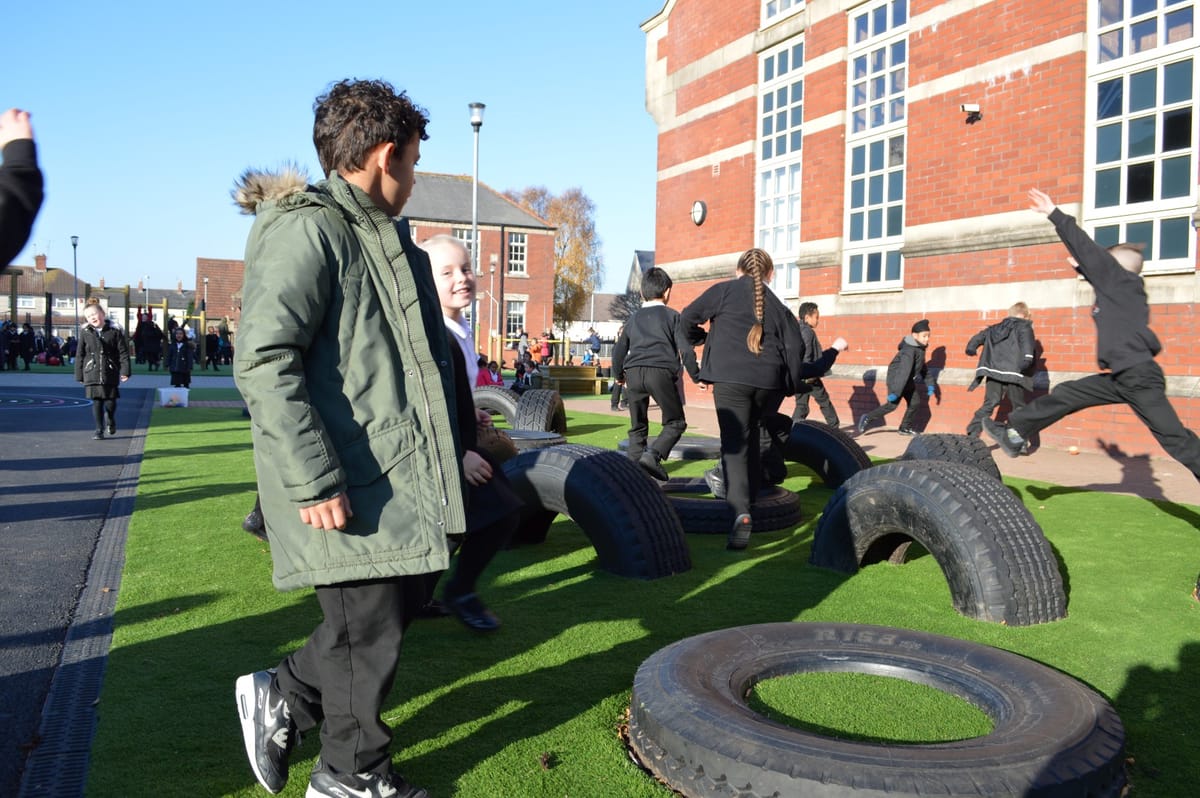
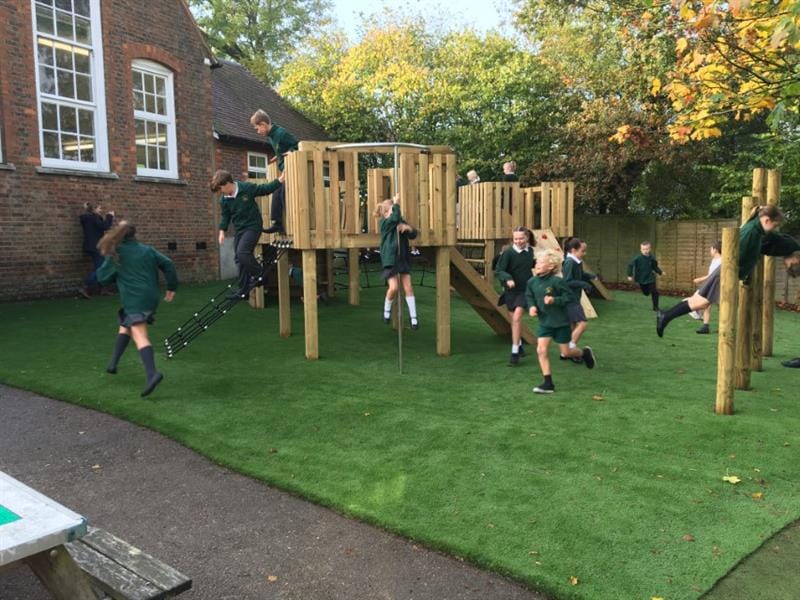

.jpg)
